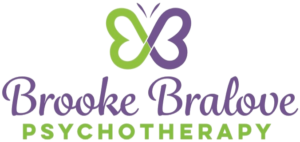4963 Elm Street, Suite 100 Bethesda, MD 20814 | 202.256.4646
NOW LICENSED IN DC, MARYLAND, & VIRGINIA
TRAUMA THERAPY
Has Trauma Impacted Your Life For Far Too Long?

Have you experienced a traumatic event or events in the past that continue to disrupt your life? Are you still wrestling with memories, fear, and emotional distress years or even decades later? Are you seeking help to find the tools to live day-to-day without your trauma holding you back? You are probably tired of this pattern and ready to change. Fortunately, trauma therapy can help you break this cycle once and for all.
In psychology, trauma is loosely defined as an emotional, mental, and physical response to something an individual finds overwhelming. Trauma comes from an array of experiences including physical and emotional abuse, neglect, sexual assault, or even attachment wounds from a past relationship. Trauma and PTSD can also occur from witnessing a traumatic death, being involved in an accident, having an Alcoholic parent, or experiencing things like divorce, racism, and bullying.
Trauma Can Make You Feel Out Of Control In Your Life
Trauma can cause strong physical and emotional reactions. When you see, hear, or even smell something that reminds you of your trauma, you may feel “triggered” and have a range of negative reactions, likely involving feelings of fear, anxiety, or panic.
A traumatic event can negatively impact your life in many ways. You may suffer from depression or anxiety, your relationships may be strained, and you may have difficulty concentrating, or even enjoying life. You may find yourself fearful of abandonment or disappointing others, and resort to a lifetime of people-pleasing.
You probably wish you could simply forget about the past and get over the trauma that has taken up so much of your energy. It is possible to live life without being triggered by your trauma, and therapy through Brooke Bralove Psychotherapy can help you get to that point.
Even Though Trauma Can Be Isolating, It Is Very Common

In the US, 70 percent of adults have gone through some kind of trauma at least once in their lives. (1) The five most common experiences that people have gone through that constitute half of the trauma reported include witnessing someone’s death or being seriously injured, having a loved one pass away unexpectedly, being the victim of a mugging, experiencing a life-threatening motor vehicle accident, and going through an injury or life-threatening illness. (2)
Additionally, the World Health Organization has suggested that in their lifetime, one in three women will experience physical or sexual abuse. The Centers for Disease Control and Prevention estimates that about one in four women have experienced a rape or an attempted rape. Also, women are more likely to have experienced childhood sexual abuse, with nearly 25 percent of girls having experienced this type of abuse. (3)
Systemic Structures In Our Culture Can Lead To Traumatic Events
Racism and sexism are still a constant in many people’s lives and can lead to traumatic experiences both at work and in one’s community. Experiencing poverty or financial instability can also be scary. Additionally, cultures that still see mental health counseling as a stigma have caused people to hide their pain and their trauma, which only leads to worsening symptoms over time.
While we may not have control over life’s conditions that may have led to our trauma, we can do our best to heal and move beyond the trauma’s impact. Counseling with Brooke Bralove Psychotherapy can help you process your trauma in a way that keeps it from holding you back any longer.
Trauma Therapy Can Help You Learn To Think Differently And Heal
When we begin trauma counseling, we will meet for an intake session in which you can share whatever it is you feel comfortable with. I strive to provide a warm, empathic, and non-shaming space for you to share your story at your own pace. I will provide some psychoeducation about what trauma is and how it impacts us, specifically in our brain and nervous system.
My goal is to help you feel seen, heard, and validated. As your therapist, I can help you identify trauma and PTSD in therapy, even if it’s more subtle relational trauma from childhood such as having emotionally immature or distant parents. Once we establish the main source(s) of your trauma, I can help you see how these early experiences, especially when repeated, directly impact your sense of self today. This can include your feelings of safety in relationships, your willingness to be vulnerable, your ability to trust, and your core beliefs about yourself.
How Talk Therapy and Accelerated Resolution Therapy Work
We will engage in a combination of talk therapy and Accelerated Resolution Therapy (ART) for trauma and PTSD. Talk therapy consists of emotional regulation techniques like mindfulness and meditation for trauma and activities such as vagus nerve exercises and tapping which can stimulate the parasympathetic nervous system.
Accelerated Resolution Therapy (ART) can help you move toward healing by decreasing your negative physical and emotional reactions when you’re triggered in as few as 1-5 sessions. ART is an evidence-based treatment that uses rapid eye movement and voluntary image replacement to change the way the brain stores distressing images and corresponding negative trauma reactions. Your brain will have the chance to reprocess and replace distressing memories with ones that make you feel calm and happy. Please visit my ART page to learn more about this incredibly effective therapeutic modality.
It is never too late to identify and heal from trauma! Many people don’t even understand trauma and its impact until much later in life. Sharing your story is the first step, and ART can provide the lasting change you want by altering the way the body responds to triggers so that you no longer go into a fight, fight, or freeze response. The combination of talk therapy and ART for trauma at Brooke Bralove Psychotherapy can provide you with the relief you’ve been looking for.
You Might Still Have Questions About Trauma Therapy…
I haven’t experienced combat, abuse, assault, etc, so how do I know if I even have trauma?

Just because you did not have what we think of as a “Big T” trauma does not mean that your body and brain didn’t experience events in your life as traumatic or that seeing a counselor couldn’t help.
Instead of asking yourself, “Did something traumatic happen to me?” Ask yourself, “Did I experience anything as traumatic?” Trauma also includes things that we might not think of, such as bullying, having overly critical parents, not having your emotional needs met by caregivers, and even difficult breakups and friendship betrayals can all create trauma responses in your body.
What are the common symptoms of trauma since I’m not sure I have it?
Trauma can create symptoms of depression, anxiety, PTSD, being easily startled by noise or unexpected touch, flashbacks, frequent nightmares, gastrointestinal issues, insomnia, eating disorders, headaches, chronic pain, substance abuse, anger, feelings of detachment, dissociation, having a poor memory of childhood, survivor guilt, and shame.
Won’t talking about my trauma make me feel worse?
While it’s true that talking endlessly about trauma for many years might not heal you, sharing your story once with a trauma-informed therapist can be one of the most powerful things on the path to healing. Secrets and silence around trauma actually make symptoms worse. Once you have shared what you wish to share with me during talk therapy, we will move on to Accelerated Resolution Therapy which involves very little talking at all and instead uses bilateral eye movements to change how one responds to trauma triggers.
 Reach Out To Brooke Bralove Psychotherapy
Reach Out To Brooke Bralove Psychotherapy
If you know you’ve experienced trauma, or even if you aren’t sure but suspect your body is telling you it has, reach out to discuss how therapy can help by connecting through my contact page or by calling (202)-256-4646. I look forward to hearing from you!
- https://www.ncbi.nlm.nih.gov/pmc/articles/PMC5632781/
- https://www.ncbi.nlm.nih.gov/pmc/articles/PMC4869975/
- https://www.apa.org/topics/women-girls/women-trauma


